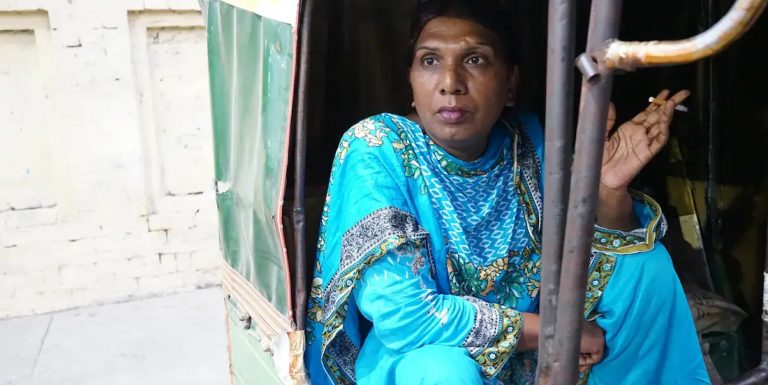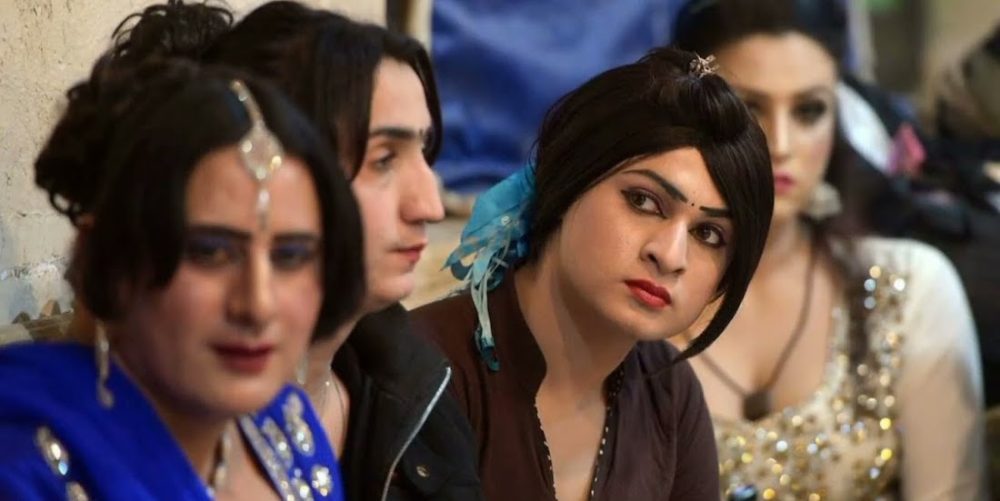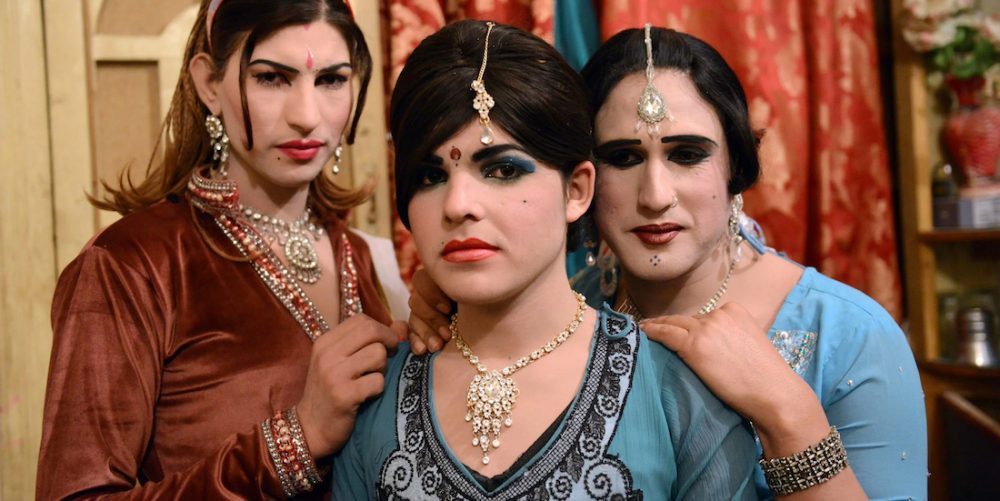
Extortion, physical attacks plague vulnerable population in northwestern Khyber Pakhtunkhwa province

New York, N.Y. – In the rugged mountains and bustling cities of Pakistan’s northwestern Khyber Pakhtunkhwa province, a vulnerable community faces an increasingly dangerous reality. Transgender individuals, known locally as khwaja sira, navigate daily threats of extortion, physical violence, and systematic discrimination that have claimed at least 157 lives over the past decade.
The escalating violence against hijra represents a troubling contradiction in a nation where transgender rights have made significant legal strides in recent years. Despite groundbreaking legislation recognizing transgender identity and protecting basic rights, the gap between legal protections and lived reality continues to widen, particularly in conservative regions like Khyber Pakhtunkhwa.

Rising Tide of Violence Targets Marginalized Community
Recent incidents paint a stark picture of vulnerability. In Peshawar, the provincial capital, transgender activist Alisha was shot and killed after receiving medical treatment at a local hospital in 2016, highlighting how even healthcare settings offer no sanctuary. The case sparked national outrage but failed to stem the rising tide of violence.

Human rights organizations document a pattern of systematic targeting that includes extortion rackets, forced displacement, and brutal physical attacks.
The TransAction Alliance, a local advocacy group, reports that 73% of transgender individuals in the province have experienced some form of violence or harassment within the past two years.
“The situation has deteriorated significantly,” explains Dr. Farzana Bari, a human rights researcher at Quaid-i-Azam University. “What we’re seeing is not random violence but organized persecution that forces transgender people into increasingly precarious situations.”
The extortion schemes operate with brazen impunity. Criminal networks systematically target transgender individuals, demanding protection money ranging from US$50 to US$200 (PKR 14,000 to PKR 56,000) monthly.
Those unable or unwilling to pay face escalating threats, property destruction, and physical violence.

Economic Marginalization Compounds Security Risks
The intersection of economic desperation and social marginalization creates a perfect storm of vulnerability. With limited employment opportunities in formal sectors, many transgender individuals turn to sex work or street performances for survival, occupations that expose them to additional risks.
Transgender rights advocate Jannat Ali describes the economic trap: “Society pushes us to the margins, denies us legitimate work, then criminalizes how we survive. We’re caught between poverty and persecution.”
Official unemployment rates for transgender individuals in Khyber Pakhtunkhwa exceed 80%, according to provincial government data. Those fortunate enough to find employment often face workplace discrimination, harassment, and wage theft that further compromises their security and stability.
The province’s conservative social fabric, influenced by traditional Pashtun cultural values and interpretations of Islamic law, creates additional barriers.
While Islam historically recognized diverse gender expressions, contemporary
interpretations often fuel discrimination and violence against transgender individuals.
Legal Progress Fails to Translate to Ground-Level Protection
Pakistan made international headlines in 2018 when it passed the Transgender Persons (Protection of Rights) Act, one of the world’s most progressive pieces of transgender legislation. The law guarantees inheritance rights, prohibits discrimination, and establishes legal recognition procedures.
However, implementation remains problematic, particularly in provinces like Khyber Pakhtunkhwa
where local authorities show limited enthusiasm for enforcement. Police often dismiss complaints
from transgender individuals or, worse, participate in the harassment themselves.

“The law exists on paper, but changing hearts and minds requires sustained effort,” notes Aisha Mughal, executive director of Trans Action Pakistan. “We need comprehensive training for law enforcement, judiciary, and healthcare workers.”
Recent court cases illustrate the enforcement gap. Despite clear legal protections, transgender individuals continue facing discrimination in hospitals, schools, and government offices.
The Supreme Court of Pakistan has issued multiple directives requiring provincial governments to implement anti-discrimination measures, yet compliance remains sporadic.
Community Resilience Amid Adversity
Despite facing systematic oppression, Pakistan’s transgender community demonstrates remarkable resilience and organization. Grassroots networks provide mutual support, emergency assistance, and advocacy for legal reform.
The All Pakistan Transgender Association operates safe houses in major cities, offering temporary shelter for individuals fleeing violence. These facilities, funded through donations and international grants, provide not only physical safety but also vocational training and legal assistance.
Social media platforms have become crucial organizing tools, allowing geographically dispersed community members to share information about threats, coordinate safety measures, and document violations. However, increased online visibility also exposes activists to new forms of harassment and targeting.
Traditional cultural practices offer some protection mechanisms. The guru-chela system, where experienced transgender individuals mentor newcomers, provides social support networks that help navigate dangerous situations. These relationships often serve as early warning systems for emerging threats.
International Attention Brings Mixed Results
Growing international awareness of Pakistan’s transgender violence has generated both opportunities and challenges. United Nations agencies and international human rights organizations increasingly spotlight the issue, creating pressure for government action.
The European Union has incorporated transgender rights monitoring into its development assistance programs for Pakistan, while the United States includes transgender issues in its annual human rights assessments. This international attention provides leverage for local advocates but sometimes triggers backlash from conservative elements.
Foreign funding supports crucial advocacy work but also makes organizations targets for accusations of promoting “Western values.” Several transgender rights groups have faced government scrutiny over their funding sources, creating additional operational challenges.
The path forward requires sustained commitment from multiple stakeholders. Legal frameworks need robust enforcement mechanisms, while social change campaigns must address deep-rooted prejudices. Most critically, transgender individuals must be centered in designing and implementing solutions to the violence they face.
As Pakistan grapples with broader questions of identity, tolerance, and human dignity, the fate of its transgender community serves as a crucial test of the nation’s commitment to protecting its most vulnerable citizens.
Pakistan’s Transgender Community Faces Escalating Violence and Threats (Aug. 13, 2025)
Summary
In Pakistan’s northwestern Khyber Pakhtunkhwa province, transgender individuals face escalating violence and extortion threats despite progressive national legislation. With 157 deaths recorded over the past decade, the gap between legal protections and lived reality continues widening. Economic marginalization, social discrimination, and inadequate law enforcement compound security risks for this vulnerable community. While grassroots organizations provide mutual support and advocacy, sustained government commitment and social change efforts remain essential for addressing systematic persecution and ensuring basic human rights protection.
#TransgenderRights #Pakistan #HumanRights #KhyberPakhtunkhwa
#LGBTQ #SocialJustice #Violence #Discrimination #Advocacy
TAGS: transgender rights, Khyber Pakhtunkhwa, discrimination, human rights, advocacy,
Pakistan, extortion, social justice, legal protection, marginalization, LGBTQ, violence
